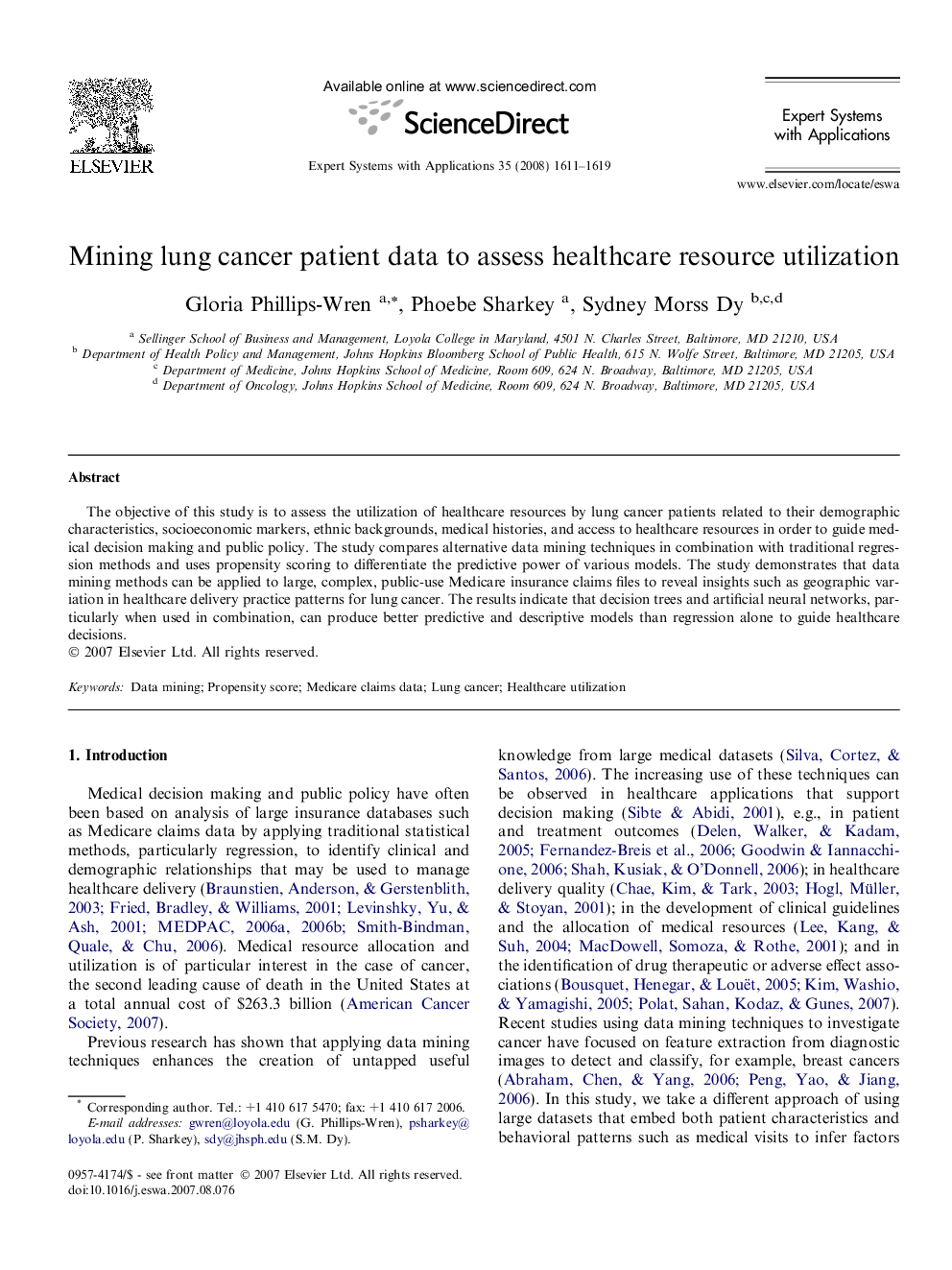| Article ID | Journal | Published Year | Pages | File Type |
|---|---|---|---|---|
| 388860 | Expert Systems with Applications | 2008 | 9 Pages |
The objective of this study is to assess the utilization of healthcare resources by lung cancer patients related to their demographic characteristics, socioeconomic markers, ethnic backgrounds, medical histories, and access to healthcare resources in order to guide medical decision making and public policy. The study compares alternative data mining techniques in combination with traditional regression methods and uses propensity scoring to differentiate the predictive power of various models. The study demonstrates that data mining methods can be applied to large, complex, public-use Medicare insurance claims files to reveal insights such as geographic variation in healthcare delivery practice patterns for lung cancer. The results indicate that decision trees and artificial neural networks, particularly when used in combination, can produce better predictive and descriptive models than regression alone to guide healthcare decisions.
